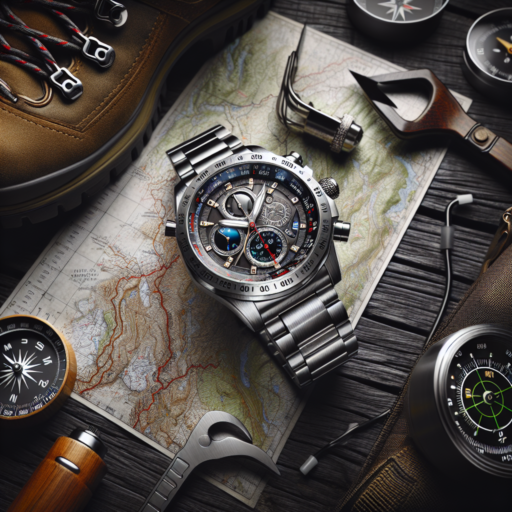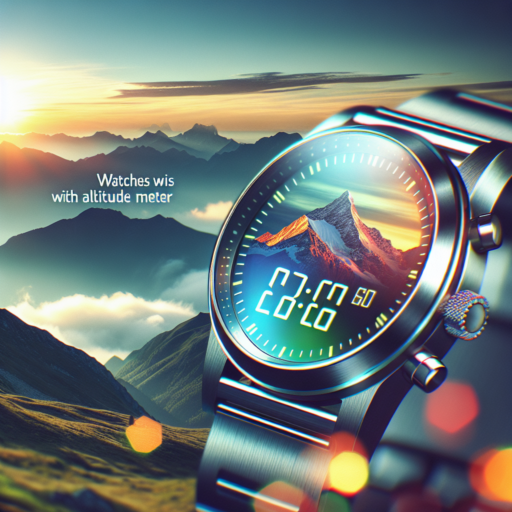Which altimeter is more accurate?
When discussing altimeter accuracy, it’s essential to understand that two primary types are predominantly used in various fields: the barometric altimeter and the GPS altimeter. The accuracy of these devices can significantly differ based on the context of their use and the specific conditions they are subjected to.
Barometric Altimeter Accuracy
Barometric altimeters measure altitude by calculating the atmospheric pressure. This method presumes that atmospheric pressure decreases predictably as altitude increases. Under stable atmospheric conditions, barometric altimeters can offer remarkable accuracy. However, their reliability can waiver with sudden changes in weather or in areas where atmospheric pressure is unpredictable. Furthermore, they require regular calibration to maintain their precision, an aspect crucial for activities like aviation and hiking.
GPS Altimeter Accuracy
On the other hand, GPS altimeters operate by triangulating signals from satellites orbiting the Earth. This technology does not rely on atmospheric conditions, making it highly reliable in diverse environments. Nevertheless, the precision of a GPS altimeter can be affected by factors such as signal obstruction by tall structures or heavy foliage. Despite these challenges, GPS technology continually improves, enhancing altimeter accuracy in even the most remote locations.
In summary, both types of altimeters have their contexts where they excel in accuracy. Barometric altimeters are exceptionally accurate under controlled atmospheric conditions, while GPS altimeters provide reliable readings across a wider range of environments. Knowing the operational strengths and limitations of each device is crucial for selecting the most accurate altimeter for your needs.
No se han encontrado productos.
How accurate are altimeter watches?
Altimeter watches have become a fundamental tool for outdoor enthusiasts, especially those who love hiking, climbing, and mountaineering. The accuracy of these devices is paramount as it directly impacts navigation and safety in high-altitude environments. Generally, altimeter watches offer a decent level of precision, utilizing barometric pressure data to measure current altitude. However, several factors can influence their accuracy.
First and foremost, weather changes play a significant role in the reliability of altimeter readings. Since these watches rely on barometric pressure, which fluctuates with weather conditions, sudden changes can lead to inaccurate altitude displays. Users may need to calibrate their altimeter watches frequently, especially when encountering rapid weather shifts, to maintain accuracy.
An additional consideration is the technology behind the watch. Modern altimeter watches often integrate GPS technology to enhance accuracy. GPS provides an additional data point for calculating altitude, reducing reliance on barometric pressure alone. As a result, watches that combine barometric and GPS data typically offer more reliable readings, although they may still require calibration against known altitudes or weather adjustments.
Moreover, the specific use and care of the device can affect its precision. Altimeter watches need to be regularly maintained and calibrated according to the manufacturer’s instructions. Adventurers should be mindful of environmental factors such as severe temperature changes, which can also impact the watch’s accuracy, and plan for regular calibration to ensure the most accurate readings possible.
Do Garmin watches have altimeters?
When it comes to tracking elevation during outdoor adventures, an altimeter is an invaluable tool. Many enthusiasts and athletes wonder Do Garmin watches have altimeters? The short answer is yes. Garmin has integrated altimeter features into a wide array of its watches, particularly those designed for outdoor, hiking, running, and multisport activities. This feature ensures that you’re not only tracking the distance and pace but also how high you climb during your outdoor endeavors.
The altimeter in Garmin watches is designed to measure elevation data by utilizing barometric pressure. This enables users to get real-time information about their ascents and descents during activities such as hiking, skiing, or mountain biking. Garmin integrates this feature into their watches to help adventurers make well-informed decisions while navigating through different elevations. It is especially useful for people who engage in activities like trail running or mountaineering, where elevation gain is a critical metric.
Models with Built-in Altimeters
- Garmin Fenix series: Known for its rugged build and comprehensive features suited for all kinds of outdoor activities.
- Garmin Forerunner series: Especially popular among runners, including models that cater to both the casual jogger and the ultra-marathon athlete.
- Garmin Instinct series: Offers a more affordable price point while still including the altimeter feature for elevation tracking.
Choosing a Garmin watch with an altimeter depends on the range of activities you engage in and the specific metrics you wish to track. Whether your interest lies in rigorous mountain climbs or gentle hikes across rolling hills, Garmin’s variety of watches with built-in altimeters provide valuable data to enhance your outdoor experience.
Do I need an altimeter watch?
Deciding whether you need an altimeter watch involves considering your lifestyle and activities. These watches are invaluable for outdoor enthusiasts who engage in mountaineering, hiking, skiing, or other activities where elevation measurement is essential. An altimeter watch provides real-time data on your current altitude, helping to navigate through unknown terrains and monitor your ascent or descent.
For adventurers, the question isn’t just about needing an altimeter watch, but about enhancing their outdoor experience. These watches come equipped with various features such as barometric pressure readings, weather trend indicators, and sometimes GPS functionality, making them a multi-functional tool that offers more than just elevation data. They can significantly contribute to your safety by alerting you to potential weather changes and helping you to make informed decisions on the trail.
Furthermore, for those who are serious about their fitness and training, an altimeter watch can be a game-changer. It’s not only about knowing your elevation but also about tracking your performance over varied terrains. This kind of watch can provide insights into your workouts, helping you to understand how altitude changes affect your stamina and endurance.




